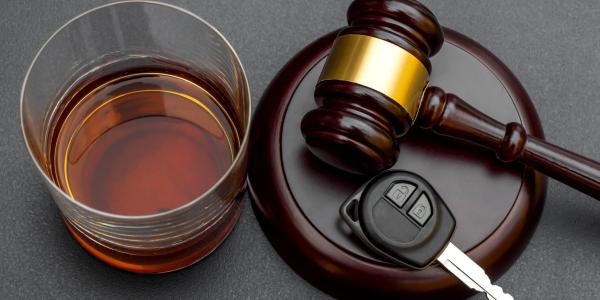Before you get started
Processing times
It may take 7-10 business days for processing after receiving your documents. Requests with incomplete information may take longer to process.
If you have not received an update within 30 days, please contact us at 360-902-3900.
An IID is an instrument you blow into before you can start your vehicle. This measures your breath alcohol content (BAC) level. You'll only be able to start your vehicle if your BAC level is under .025.
You'll be required to install an IID if you've had:
- A conviction for an alcohol or drug-related DUI or Physical Control of a motor vehicle.
- A conviction of operating a vehicle without an ignition interlock device installed.
- Some convictions of reckless driving.
- Some convictions of negligent driving.
- Some convictions of circumventing an ignition interlock device.
- Any court-ordered IID requirement.
How to get an IID installed
Follow these steps to get your approved IID installed:
- Find IID manufacturers with approved devices by visiting the Washington State Patrol's website.
- Have an approved IID manufacturer install the device.
- Once your IID is installed, your IID vendor will submit proof of installation to us
Get an IID installed out of state
If you need to meet the requirements for IID in Washington but either no longer reside here, or need to have an IID installed outside of Washington, you must submit an out-of-state ignition interlock status verification form. Please fill out this form and either print on white paper and fax to 360-570-4961, or scan and email to interlock@dol.wa.gov.
This form allows an ignition interlock company representative to report that:
- A Washington State Patrol-certified ignition interlock device has been installed.
- An ignition interlock device has been removed or is no longer functioning.
- The driver hasn't had any incidents in the previous 4 months which would prevent removal of the interlock restriction.
Vehicles that require an IID
You'll need to have an IID installed in any vehicle you drive.
Employer vehicles
If you operate an employer-owned vehicle during work hours, you may submit an Employer Declaration for Ignition Interlock Exemption to us so they don't have to install IIDs on their vehicles.
- You can't submit this form if the employer's vehicle is assigned exclusively to you for commuting to and from work. It would need to have an IID installed before you drive it.
- Submit the form to us before you drive any employer's vehicles.
- Carry a copy with you whenever you drive an employer vehicle.
IID requirement period
The IID requirement period is how long you'll be required to have an IID.
| For: | You must have an IID for: |
|---|---|
| Some convictions of reckless driving. | At least 6 months. |
| Some convictions of negligent driving. | At least 6 months. |
| A conviction of operating a vehicle without an ignition interlock device installed. | At least 6 months. |
| Some convictions of circumventing an ignition interlock device. | At least 6 months. |
| Conviction of DUI or Physical Control of a motor vehicle. |
|
Tolling requirements
These requirements are for violations and deferred prosecution findings as of June 9, 2016. This means that you must have the IID installed for your entire requirement period. You'll receive day-for-day credit towards your requirement period for each day the device is installed in a vehicle. If a device is removed, tolling stops and won't begin again until you have the IID reinstalled.
For example:
You're convicted of a violation that occurred September 1, 2016, you're required to have a device for 365 days:
- December 27, 2016 – device is installed
- April 6, 2017 – device is removed, this equals 100 days that have been fulfilled
- May 31, 2017 – device is reinstalled
- February 24, 2018 – Date you may request your certificate of compliance if there are no more removals or failed attempts.
If you have your IID removed before fulfilling your IID requirement period, your license will be suspended.
Certificate of compliance
The certificate of compliance is the document submitted by your IID vendor to us at the end of your IID requirement period. When you're finished with your requirement period contact your IID vendor to request the certificate of compliance. They'll submit the certificate if you have not done any of the following in the last 4 months or the last 180 days:
- Attempting to start the vehicle with a breath alcohol content of .04 or more
- Failed to take or pass any required retest
- Failed to schedule maintenance for your IID such as repairs, calibration, monitoring, inspection, or replacing the device
If you violate any of the above, you'll need to restart your certificate of compliance time period.
Your certificate of compliance requirement is based on your violation date:
- Before July 23, 2017, your compliance period will be the last 4 consecutive months of your IID requirement period.
- On or after July 23, 2017, your compliance period will be the last 180 consecutive days of your IID requirement period.
- As of September 1, 2018, any convictions received with a conviction date after July 23, 2017, will require a 180-day certificate of compliance.
Medical tolling exemptions
You may be eligible for an IID medical exemption if:
- You had an alcohol/drug violation.
- You're not physically able to operate an IID.
You won't be able to drive but the exemption allows you to earn day-for-day credit towards your IID requirement period as though a device was installed.
To apply for a medical exemption:
- Complete the Driver/Patient information section of the Ignition Interlock Device Tolling Medical Exemption form.
- Take the form to your doctor for an exam and have them complete the Medical provider section. The exam must have been done in the last 30 days.
- Your doctor may indicate a temporary condition that says you're not able to meet the minimum breath requirements. If this is the case, the exemption is only good to the date that's decided by the doctor.
- Your exemption could be good for up to 1 year if you have a permanent or progressive condition that could last longer than a year. You must submit a new exemption form each year before the current exemption expires.
After we receive your form, we'll review it to determine:
- If the form is signed by a licensed medical provider (MD, DO, RN, ARNP or PA).
- If the doctor indicated that you can't meet the minimum breath sample requirements.
- If the exam was completed in the last 30 days.
- If you qualify for the Ignition Interlock Device Tolling Medical Exemption. You must not have an IID installed on any of your vehicles to qualify.
After we review your form, we'll send a letter letting you know if you've been accepted or denied.
- If you're accepted, you'll get day-for-day credit towards your IID tolling requirement. Your credit won't start until we have processed and approved your application.
- If you're denied, you can submit a new form.
Help for low-income drivers
You may be eligible for financial assistance during the time you have an IIL or IID requirement. If you can't afford to install, lease, remove, or transfer* an ignition interlock device in the vehicles you drive you can apply for assistance by submitting an Ignition Interlock Device Financial Assistance Application (English, Español, Русский, and more).
* A transfer occurs when you move the device from one vehicle to another. The reimbursement is $100 plus tax and one transfer per calendar year is allowed.
You must provide proof of income or a signed statement indicating you have no income. If any boxes for Additional benefits are marked, you must also submit proof of benefits. Your application will be denied if documentation is not attached or all required fields are not complete. If you re-submit an application, you must re-submit all materials with a new form.
- If you're approved, you'll need to reapply every year.
- You can reapply within 30 days of your current coverage's expiration date.
- If you're denied, you may reapply after 30 days.
To qualify, you must be indigent (see RCW10.101.010) and meet the following cut-off level:
2025 poverty guidelines for Washington State
| People in family/household | Annual income | Monthly income |
|---|---|---|
| 1 | $19,563 | $1,630 |
| 2 | $26,438 | $2,203 |
| 3 | $33,313 | $2,776 |
| 4 | $40,188 | $3,349 |
| 5 | $47,063 | $3,922 |
| 6 | $53,938 | $4,495 |
| 7 | $60,813 | $5,068 |
| 8 | $67,688 | $5,641 |
Related laws
- RCW 10.101.010: Definitions
- RCW 46.20.720: Drivers convicted of alcohol offenses
- RCW 46.20.740: Notation on driving record — Verification of interlock — Penalty
- RCW 46.61.5055: Alcohol violators — Penalty schedule
- RCW 46.04.215: Ignition interlock device
- WAC 204-50: Ignition interlock breath alcohol devices




